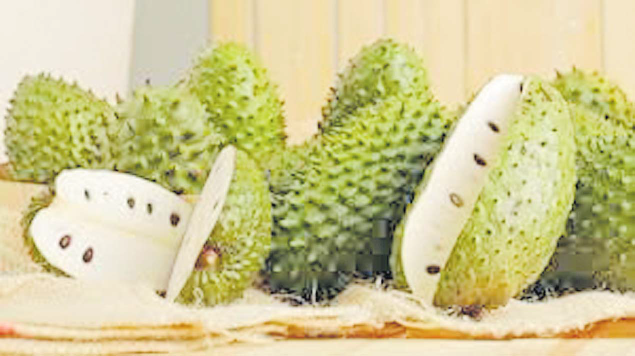In this season of Exotic Delights, we showcase the locally-grown, fresh produce that are medicine for our body – the superfoods.
They help restore nutrition by providing us with concentrated doses of vitamins and minerals from the land and sea at a specific time of the year. I am a firm believer that nature provides us with seasonal fruits and vegetables for a reason – they contain healing medicine and nutrition.
It is a shame that many Pacific Islanders still think that it is normal and healthy to eat from a packet, bottle or tin. Our rate of non-communicable diseases in Fiji and beyond reflects a poor diet lacking in the superfoods to help combat disease. The human body needs a broad range of vitamins, minerals, fibre and water to maintain an optimal living, but when you don’t feed it fresh seasonal produce regularly you are literally cutting your life short.
Superfood, superfruit Next Tuesday’s episode of Exotic Delights features a very special fruit that is largely not eaten as often as it should – soursop. Soursop is a fruit that grows in tropical climates, including South America, the Caribbean, Asia, Africa and of course the South Pacific.
It’s also known as Graviola, Brazilian paw paw and custard apple. It has green skin and looks like a spiky mango with white fl esh and brown seeds inside. Soursop contains more than 200 chemical compounds in its pulp, leaves, and stems that contribute to its many health benefits, and right now they are in season.
Health benefits of soursop
Since the Nineties, Soursop has been championed for its wide-ranging health benefi ts. The leaves and root are known to boost your immune system, help soothe stomach ailments and ease hypertension. Soursop is also a powerful antioxidant and a good source of vitamin C, B1 and B2. The latter two along with magnesium help to boost your energy levels without giving you the dip that is associated with caffeine. In recent years, two studies have also highlighted soursop’s potential to block pain and reduce infl ammation. In ancient times, soursop was used as a herbal treatment for stomach ailments and fever. The impressive health benefi ts of soursop include its ability to kill parasites, improve respiratory conditions, offer sedative qualities, reduce the risk of certain kinds of cancer, boost the immune system, soothe the stomach, and relieve pain. Delicious soursop also is laden with vitamin C, vitamin E, zinc and beta carotene. This potent combination can potentially protect you from eye disease and promote vision health. You only need to Google the health benefi ts of this potent fruit to realize just how special it is in helping our body to ward off disease. Its anti-infl ammatory credentials make it an ideal food for people with gout, arthritis and joint pain. Soursop is not a miracle cure for all of these ailments but based on how it was used in the past and more recent studies, it can help to relieve.
How to eat soursop The soursop fruit’s green leathery skin is covered in small thorns, but you’ll fi nd that it’s surprisingly tender. Despite its somewhat alien appearance, with a few well-placed cuts, soursop can be peeled with little effort. The pulp is fi brous, milky white and contains distinctive but unedible black seeds, while the skin is bitter. You can extract soursop juice by pressing the deseeded pulp through a sieve, colander or cheesecloth, or it is commonly eaten on its own or used in syrups, smoothies, desserts, ice creams and sweets. The fl avour of soursop is quite distinctive, and despite its name, it’s actually a sweet fruit. It is often compared to an apple crossed with a strawberry, or banana and coconut, but with an underlying sour citrus fl avour. It is this taste that puts some people off soursop, but it is this very fl avour that indicates the fruit’s medicinal power.
Special recipes Soursop is now in the season but you’ll still need to go hunting for it as it is not always widely available as market vendors don’t think they will sell as fast as root crops or other popular fruits. If you are a soursop farmer though, think of yourself as one of nature’s ambassadors because this fruit is very impressive as a medicinal food.
In my Kanu Restaurant, we are currently serving soursop in the bar as my customers learn to appreciate its unique taste. In the show next week, the soursop recipes for smoothies, juice and cheesecake are super simple to make and tastes just divine.
One of the FBC cameramen, who will admit is no chef, was so impressed by the recipe’s ease that he decided to try it that same day we filmed this episode. Cream cheese and soursop are a heavenly match, so before the show airs next Tuesday, go find some soursop today so it ripens in time.
Lance Seeto is the host of Exotic Delights: Fijian Superfoods, every Tuesday night 7.45pm only on FBCTV.




